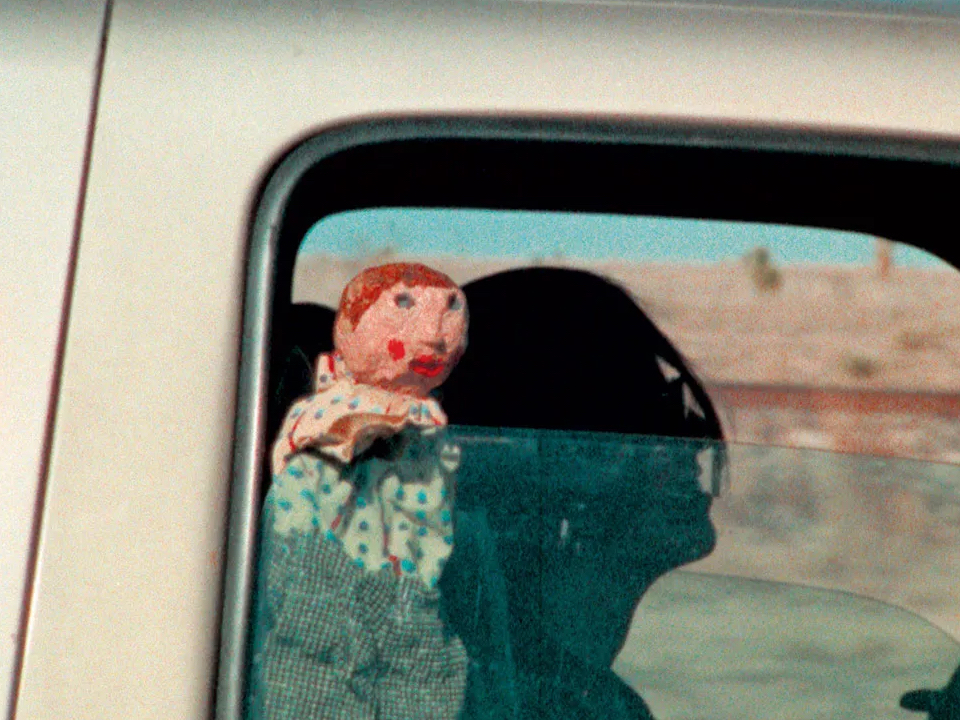
The Trip is a road trip movie through the majestic, rough-hewn landscape separating Texas towns Marfa and Alpine with acclaimed poet Eileen Myles as your guide. Inspired by Jack Kerouac’s spoken score of Robert Frank’s 1958 poetic classic Pull My Daisy, Myles talks dailiness and political realities with puppet interlocutors Oscar, Bedilia, Montgomery, Casper, and Crocky.
EN
“Myles, too, opens a dialogue with their younger self in their recent film The Trip (2019), a Super 8 road movie made with filmmaker David Fenster. The Trip stars five puppets made by Myles as a child, which they unearthed from a wicker basket a few months after the Beinecke sale. With crude papier-mâché heads and clothes made of fabric scraps, the puppets – Bedilia (‘the diva’), Oscar (‘the man of the house, kind of my Dad’), Casper (‘the ghost’), gay Montgomery, and the loose-toothed Crocky – accompany Eileen and their dog on a drive through West Texas. The dolls express their excitement over their newfound freedom from over sixty years of entombment in both earnest and kitschy ways. Oscar marvels at a passing train, and Montgomery blows kisses at a cowboy from the truck window.
Myles has said they were inspired by Jack Kerouac’s twenty-eight-minute voice-over for Robert Frank’s Pull My Daisy (1959), made around the same time as the puppets. Kerouac’s narration, which is frequently described as ‘improvised’ despite the fact that it was spliced together from three separate recordings and based on a script written by the poet, slides between ‘aligning itself with the ‘now’ of the image and giving voice to a recognition of its pastness,’ as critic George Kouvaros has noted. In The Trip, Myles mostly forgoes the cinematic clichés for shaping time – flash-forward, slow motion, freeze-frame – in favor of the long take, providing the audience with a less-mediated experience, but their voice-over still splinters the film’s temporal movement. When, near the end of the film, Myles-as-narrator asks, ‘Can we wrap up?’ and then proceeds to recount what we just saw, they deepen the work’s sense of self-reference.”
Rachel Churner1
- 1Rachel Churner, “Never Too Late,” Artforum, February 2020.

